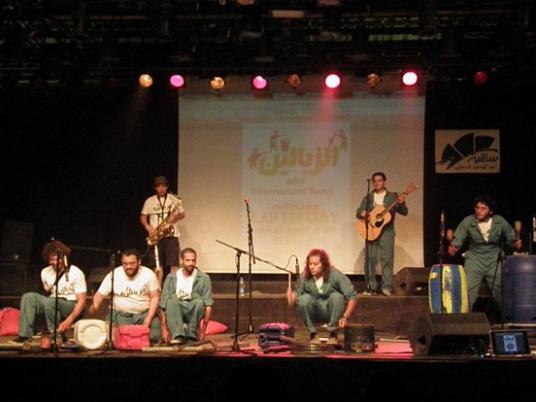Over the last decade, buzzwords such as "renewable", "sustainable" and "carbon footprint" seem to crop up in every other sentence–a result of increased public attention towards global climate change.
This new-found lexicon has infiltrated our own Egyptian lingo of late in a flurry of top-down carbon crediting and carpooling priorities that have superseded our own, local state of affairs.
What local state am I talking about you may ask?
Many believe the green revolution started elsewhere, but a fresh look at Egypt’s recent history of resource consumption reveals another perspective. According to the Egyptian Environmental Affairs Agency (EEAA), our country contributes a mere 0.57 percent of global greenhouse gas emissions. Greenhouse gases, therefore, are not a primary concern for our own environmental well-being.
Cairo’s persevering community of garbage men and women have, in the past, achieved a recycling rate of 80 percent, according to the PBS documentary Garbage Dreams. That rate remains unmatched by even the most discerning Western "green" nations that have invested large sums of money in state of the art infrastructure.
However, since introducing waste management companies and slaughtering the pigs that made up the other half of the garbage collectors’ livelihoods, uncollected garbage in the streets, alleyways and canals of our capital poses a mounting health risk.
Our use of private cars, the largest pollutant and most congestive form of transport, is minor. According to research done on Cairo for the 2006 Venice Biennale, 13 percent of journeys take place by car, 40 percent by public transport, and over 30 percent by walking.
Yet Cairo is one of the more polluted cities on the face of the planet. Conservative estimates blame 2.1 percent of deaths in the city on air pollution.
Despite government claims that electricity is subsidized, most of us struggle to pay ever-increasing bills and continue to suffer from recent rolling blackouts, as power stations have failed to match demand. But the statistics website, Nation Master, shows our per-capita consumption to be a staggering 80 percent lower than the environmentally savvy nation of Germany.
We are an environmentally conscious people in our own way. We have always carefully scrutinized the use of our resources, at least to a degree, because they come to us at great personal cost. There is no question that the recent prevailing trend of consumerism in the urbanized half of the country, especially Cairo, is coming at the expense of the rural half. And this trend is not sustainable.
Yet it is the rural half, as well as a good portion of the urbanized masses, that possess an ingrained conservationism that leads them to place timers on stairwell lights, drink from reusable glass soda bottles and pass on clothes from one generation to the next.
This is a great wealth of knowledge that anyone interested in a sustainable future should tap into, help evolve and, eventually, export to all those other nations struggling to rewrite their unsustainable existence.
Yahia Shawkat is an architect and heritage planner with the Tarek Waly Center, Architecture & Heritage.


